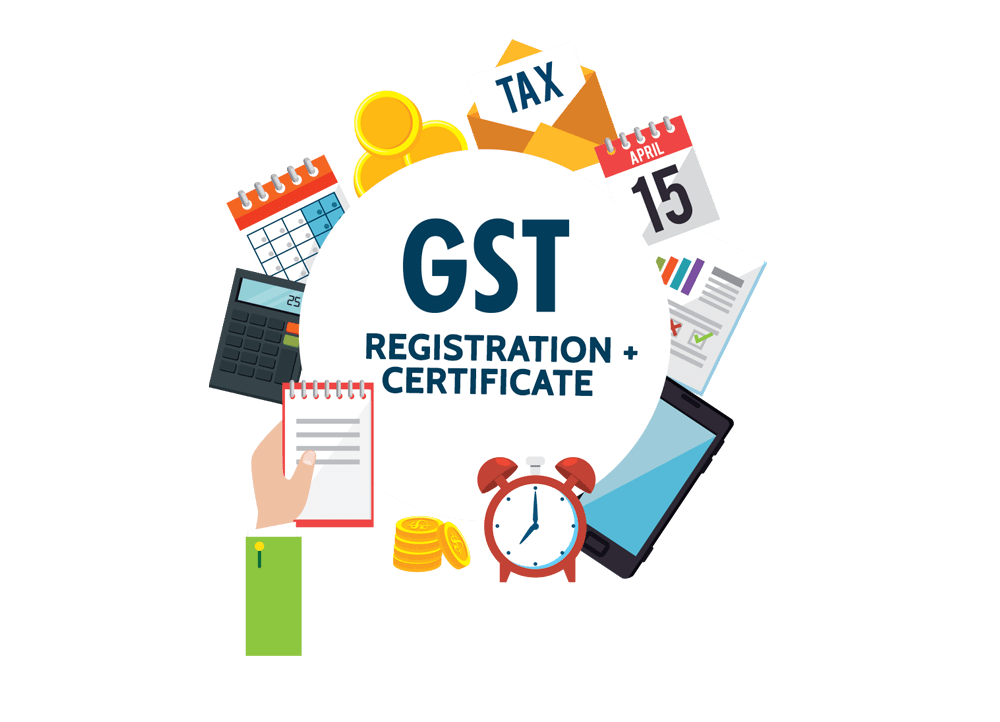From Start to End Up: An Extensive Review of GST Registration and How to Effectively Register Your Business
Navigating with the elaborate process of GST enrollment can be an important action for any kind of organization wanting to develop compliance and authenticity out there. Why choose CFO Account & Services for GST registration in Singapore. From comprehending the basic principles of GST to satisfying the qualification requirements and collecting the required documentation, the trip towards successful enrollment can frequently feel like a complicated job. With the ideal support and insights, companies can enhance this process and unlock the advantages that come with being a registered entity.
Understanding GST and Its Value
Recognizing the Item and Solutions Tax Obligation (GST) and its importance is important for businesses operating in economic climates where this tax system is executed. By permitting services to assert input tax credit scores on the tax paid on acquisitions, GST makes sure that tax obligations are computed just on the worth added at each stage of the supply chain.
In addition, GST advertises conformity and transparency in the tax program, lowering tax evasion and raising government income. It streamlines tax obligation management and compliance for businesses by providing an usual platform for tax obligation filing and repayment. Generally, a detailed understanding of GST is essential for services to effectively browse the intricacies of the tax obligation system and guarantee compliance with the legislation.
Qualification Requirements for GST Enrollment
To register for GST, organizations have to satisfy details qualification criteria laid out by the tax authorities. The key requirement for GST enrollment is that business's aggregate turnover exceeds the threshold set by the federal government, which differs by state. As of the existing standards, businesses with a yearly turnover of Rs. 40 lakhs or more in many states should register for GST. Nonetheless, for organizations running in hilly regions and northeastern states, the limit is Rs. 20 lakhs. In addition, certain companies, such as those associated with inter-state supply of items or services, laid-back taxable individuals, and non-resident taxed persons, are called for to sign up for GST despite their turnover.
Additionally, services associated with providing products or solutions through shopping platforms are also mandated to register for GST, regardless of their turnover. Moreover, organizations that were signed up under the previous tax regimen, such as barrel, excise responsibility, or solution tax obligation, should change their registration to GST. Abiding by these eligibility standards is crucial for companies seeking to follow the GST policies and prevent any kind of penalties for non-compliance.
Documents Required for GST Enrollment
When making an application for GST registration, businesses must ensure they have all the necessary files in order to complete the procedure efficiently and efficiently. The vital records required for GST registration consist of evidence of business registration or unification such as the Certification of Incorporation, collaboration action, or enrollment certificate. Additionally, companies need to provide proof of address for the major business, which can be sustained by documents like an utility bill or a rental agreement.
Moreover, records verifying the identity and address of the promoters or partners associated with business, such as PAN card, Aadhaar card, or ticket, are important for GST registration. Savings account declarations or terminated cheques showing the name of the organization, address, and account number are also necessary to validate the financial institution account details offered throughout registration.
Making sure all the required papers are in order and readily offered will improve the GST enrollment great post to read process and assistance services avoid delays or difficulties.
Online Registration Refine for GST

After finishing the form, sustaining documents require to be submitted based on the guidelines given. These records normally include evidence of business enrollment, address evidence, bank statements, and identification evidence of the business proprietor. It is vital to ensure that all records are clear, valid, and published in the specified style to stay clear of delays in the registration procedure.
As soon as the application and files are sent, businesses can track the status of their GST registration online. If there are no problems or added information needed, the GST enrollment certificate will be provided online, marking the successful conclusion of the on-line enrollment procedure.
Post-Registration Conformity and Tips

In addition, businesses should maintain proper account books, including invoices, accountancy documents, and monetary statements, to support the information provided in GST returns. Routine audits and reconciliations need to be conducted to ensure information precision and conformity with GST laws. Businesses need to remain upgraded on any type of changes in GST regulations, prices, or conformity treatments to make needed adjustments promptly. Looking for expert help from tax professionals or accounting professionals can likewise help businesses browse intricate GST compliance demands successfully. By staying alert and positive in post-registration compliance, businesses can prevent penalties, preserve excellent standing with tax authorities, and foster functional performance.
Conclusion
Finally, the procedure of GST registration is important for businesses to follow tax obligation laws and operate lawfully. By recognizing the qualification standards, gathering the required papers, and finishing the online registration procedure, businesses can successfully register for GST. When needed to make sure smooth procedures., it is essential to remain certified with post-registration needs and look for specialist guidance (Why choose CFO Account & Services for GST registration in Singapore).
Businesses that were signed up under the previous tax obligation regimen, such as Barrel, excise responsibility, or solution tax obligation, need to transition their registration to GST. The key documents required for GST registration consist of evidence of service enrollment or unification such as the Certification of Consolidation, partnership action, or registration certificate.Upon successful completion of the GST enrollment procedure, businesses must promptly adhere to post-registration conformity needs to maintain regulative conformity and make certain smooth procedures.In verdict, the procedure of GST registration is crucial for organizations to abide with tax obligation policies and operate lawfully. By comprehending the eligibility criteria, collecting the needed files, and completing the online enrollment process, companies can successfully sign up for GST.